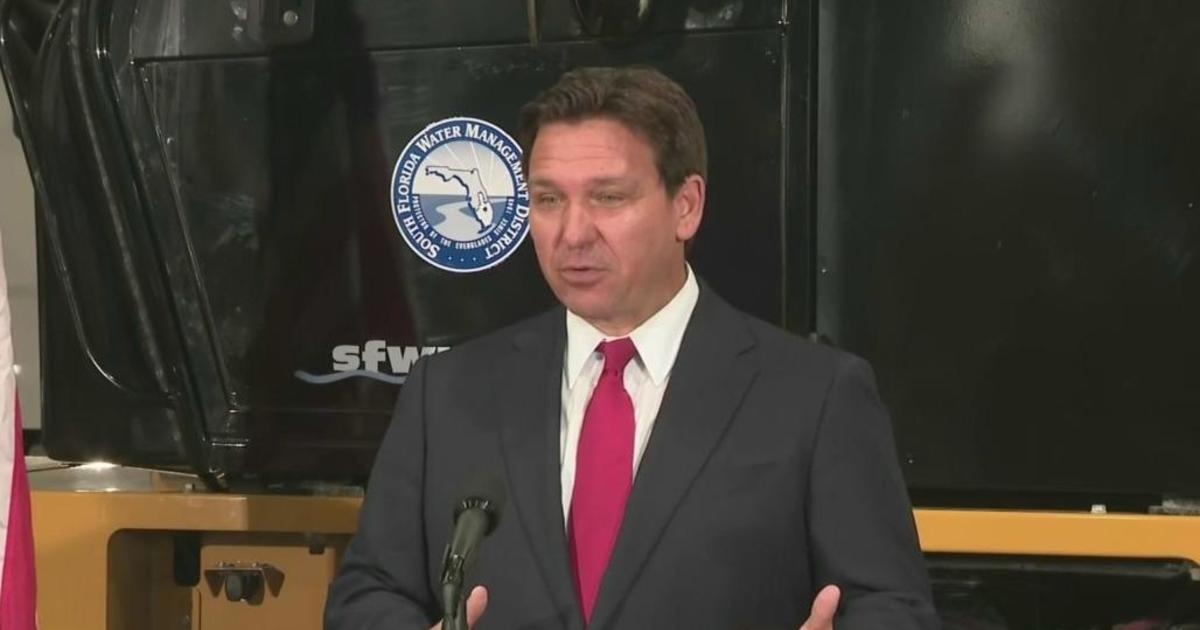Low Income Students Could Get More Aid
Follow CBSMIAMI.COM: Facebook | Twitter
TALLAHASSEE (CBSMiami/NSF) - Although state college leaders are unhappy with a Senate budget that would boost university funding but slash support for the colleges, they are pleased with a Senate effort to expand aid for students who come from lower-income families.
The budget plan (SB 2500), which the Senate will take up Wednesday, would increase the state's largest need-based aid program, known as Florida student assistance grants, by 81 percent, or $121 million, in the academic year that begins July 1. Senators also want to double the state's matching grants for "first generation" college and university students to a total of $10.6 million.
The increase in need-based aid, which would also help the university system, is important to the 28 state colleges because their students will not benefit much from the Senate's plan to expand the Bright Futures merit scholarship program. The Senate budget would cover full tuition and fees for the top Bright Futures students, known as "academic scholars," as well as provide $300 for textbooks for two semesters and cover summer tuition.
But out of 46,000 Bright Futures academic scholars projected in the next academic year, only 5 percent of them will be enrolled at a state college.
In contrast, state college students represented 70 percent of the 105,000 students in a public college or university who received a need-based Florida student assistance grant in the 2015-16 academic year, according to the state Department of Education.
Systemwide, state college students received an average grant of $903, ranging from $1,651 at Chipola College to $499 at Broward College. Broward had the most students receiving grants, with 17,000, followed by Miami Dade College with 16,700.
The Senate budget would expand Florida student assistance grants for public universities and colleges from the current year $114.6 million to $208 million. The grants also go to private universities and other post-secondary programs.
"We're all over the Senate right now because we're concerned," said David Armstrong, president of Broward College, referring to the Senate's proposed budget cuts, including a $55 million reduction in remedial education funding for the colleges.
But it's a different story with the Senate's plan to expand need-based aid.
"We have been neglecting the need-based (programs)," said Armstrong, who oversees the second-largest state college in the system, with some 66,000 students. "Kudos to the Senate. I applaud them for addressing the need-based issues."
The Senate and House are expected next week to approve their budget bills, setting the stage for negotiations on a final spending plan for the fiscal year that starts July 1.
The House budget plan (HB 5001) would lead to a 5 percent increase in the overall Florida student assistance grants program.
State colleges would also benefit from the expansion of another needs-based aid program in the Senate budget, which would double the state match for students who qualify as "first generation" college or university students. The Senate bill would double the state funding to $10.6 million, meaning for every dollar a college or university raises for the program, it would be matched by $2 from the state.
State colleges should receive about $2.65 million in matching funds from the program, reflecting about quarter of the funds, a proportion that is consistent with what they received in the 2015-16 academic year.
The House budget does not expand the first-generation matching program, nor does it provide any expansion of the Bright Futures merit scholarships.
Ava Parker, president of Palm Beach State College, said less than 2 percent of the 46,000 students on her campus have Bright Futures scholarships and she appreciates the Senate's effort to boost need-based aid programs.
"The Senate has a real appreciation for (the fact) that we have students who have economic challenges and they're trying to find ways to assist with that," Parker said. "I think the Senate is really focused on what things can we do to ensure that folks graduate faster and they understand that the college system is a piece of that puzzle."
Having said that, though, Parker said she remains concerned about what the college leaders perceive as an imbalance in the Senate higher-education budget that would increase university funding while cutting state colleges. She said the cuts would make it harder for colleges to achieve the Legislature's goal of graduating more students on time.
"It's a greater understanding that if you don't help us also participate in that (funding) equation (with the universities), it's going to be more difficult for you to reach that goal," Parker said.
Also, a gap remains for students who rely on need-based aid to attend state colleges or universities. Neither the Florida student assistance grant program nor the first-generation grants can be used during the summer semester.
It is further complicated by the fact that lower-income students tend to rely on a combination of scholarships and grants to pay for their educations. One of the key financial supports is the federal Pell grant program, which since 2011 also has not covered the summer semester.
Over the last year, there has been debate in Congress about making Pell grants available year-round, but that has not become a reality.
Another challenge for financial aid looms in the House, where leaders have raised objections to colleges and universities using public employees in their private foundations, which raise money for the schools.
Armstrong, Parker and other college presidents said limitations on the foundations could hurt their ability to raise money, which at the colleges is primarily used to fund scholarships.
The News Service of Florida's Lloyd Dunkelberger contributed to this report.



